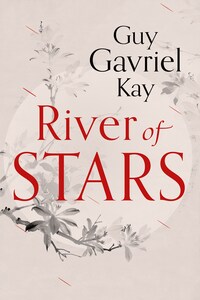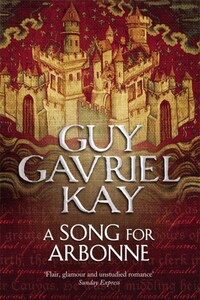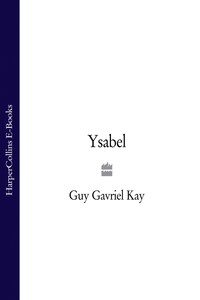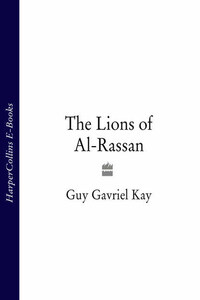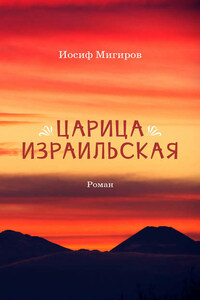HarperCollinsPublishers
77–85 Fulham Palace Road,
Hammersmith, London W6 8JB
www.harpercollins.co.uk
Published by HarperCollinsPublishers 2013
Copyright © Guy Gavriel Kay 2013
Map copyright © Martin Springett 2013
Cover layout design © HarperCollinsPublishers Ltd 2014
Cover photograph © Shutterstock.com
Guy Gavriel Kay asserts the moral right to be identified as the author of this work
A catalogue record for this book is available from the British Library
Source TPB ISBN: 9780007521913
Source HB ISBN: 9780007521906
Ebook Edition © 2013 ISBN: 9780007521920
This novel is entirely a work of fiction.
The names, characters and incidents portrayed in it are the work of the author’s imagination. Any resemblance to actual persons, living or dead, events or localities is entirely coincidental.
Version: 2014-06-23
All rights reserved under International and Pan-American Copyright Conventions. By payment of the required fees, you have been granted the non-exclusive, non-transferable right to access and read the text of this e-book on-screen. No part of this text may be reproduced, transmitted, down-loaded, decompiled, reverse engineered, or stored in or introduced into any information storage and retrieval system, in any form or by any means, whether electronic or mechanical, now known or hereinafter invented, without the express written permission of HarperCollins.
(A partial list, characters generally identified by their role when first appearing)
Associated with the court
Emperor Wenzong of Kitai
Chizu, his son and heir
Zhizeng (“Prince Jen”), his ninth son
Hang Dejin, prime minister of Kitai
Hang Hsien, his son
Kai Zhen, deputy prime minister of Kitai
Yu-lan, his wife
Tan Ming, one of his concubines
Wu Tong, a eunuch, Kai Zhen’s ally, a military commander
Sun Shiwei, an assassin
Elsewhere in Kitai
Ren Yuan, a clerk in the western village of Shengdu
Ren Daiyan, his younger son
Wang Fuyin, sub-prefect in Shengdu
Tuan Lung (“Teacher Tuan”), founder of an academy in Shengdu
Zhao Ziji, a military officer
Lin Kuo, a court gentleman
Lin Shan, his daughter and only child
Qi Wai, husband to Shan
Xi Wengao (“Master Xi”), formerly prime minister, a historian
Lu Chen, friend to Xi Wengao, a poet, exiled
Lu Chao, Chen’s brother, also exiled
Lu Mah, Chen’s son
Shao Bian, a young woman in the Great River town of Chunyu
Shao Pan, her younger brother
Sima Peng, a woman in Gongzhu, a hamlet near the Great River
Zhi-li, her daughter
Ming Dun, a soldier
Kang Junwen, a soldier, escapee from occupied lands
Shenwei Huang, a military commander
On the steppe
Emperor Te-kuan of the Xiaolu
Yao-kan, his cousin and principal adviser
Yan’po, kaghan of the Altai tribe
Wan’yen, war-leader of the Altai
Bai’ji, Wan’yen’s brother
Paiya, kaghan of the Khashin tribe
O-Pang, kaghan of the Jeni tribe
O-Yan, his youngest brother
Late autumn, early morning. It is cold, mist rising from the forest floor, sheathing the green bamboo trees in the grove, muffling sounds, hiding the Twelve Peaks to the east. The maple leaves on the way here are red and yellow on the ground, and falling. The temple bells from the edge of town seem distant when they ring, as if from another world.
There are tigers in the forests, but they hunt at night, will not be hungry now, and this is a small grove. The villagers of Shengdu, though they fear them and the older ones make offerings to a tiger god at altars, still go into the woods by day when they need to, for firewood or to hunt, unless a man-eater is known to be about. At such times a primitive terror claims them all, and fields will go untilled, tea plants unharvested, until the beast is killed, which can take a great effort, and sometimes there are deaths.
The boy was alone in the bamboo grove on a morning swaddled in fog, a wan, weak hint of sun pushing between leaves: light trying to declare itself, not quite there. He was swinging a bamboo sword he’d made, and he was angry.
He’d been unhappy and aggrieved for two weeks now, having reasons entirely sufficient in his own mind, such as his life lying in ruins like a city sacked by barbarians.
At the moment, however, because he was inclined towards thinking in certain ways, he was attempting to decide whether anger made him better or worse with the bamboo sword. And would it be different with his bow?
The exercise he pursued here, one he’d invented for himself, was a test, training, discipline, not a child’s diversion (he wasn’t a child any more).
As best he could tell, no one knew he came to this grove. His brother certainly didn’t, or he’d have followed to mock—and probably break the bamboo swords.
